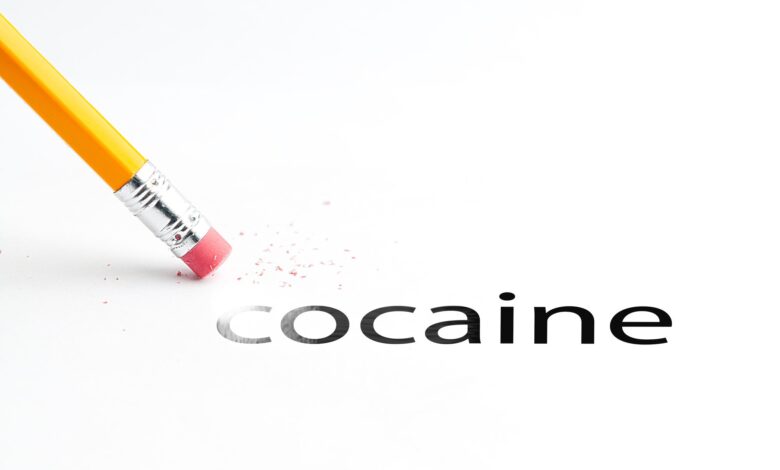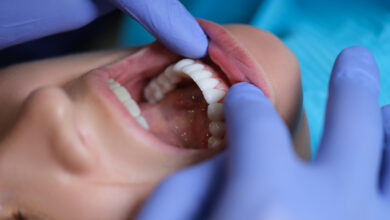What to Expect When Detoxing From Cocaine

Cocaine is a powerful drug. You know this. But, did you ever stop to think, “What’s it doing to my body?”
The answer: plenty. Cocaine is an addictive substance that can trigger withdrawal if you depend on the drug.
After learning about the withdrawal symptoms of cocaine, you might not feel ready for a detox. But getting clean is far easier and more comfortable when you’ve prepared for it.
Keep reading for detoxing from cocaine timeline and what to expect when cleaning yourself up from drug addiction.
Understanding the Detoxing From Cocaine
Detoxing from drugs can be a challenging and overwhelming physical and mental process. The body will adjust to function without the substance. These symptoms can last several days or weeks, depending on the extent of one’s addiction.
Physical symptoms may also occur, making it difficult to function normally. It is vital to seek support from medical professionals and loved ones during this time. This is because detoxing from cocaine can be emotionally taxing.
It is also essential to be prepared for potential setbacks and have a plan to prevent relapse. The process is not easy. But with determination and support, overcoming addiction and beginning a new, healthier chapter in life is possible.
Physical Symptoms
The physical symptoms of withdrawal can vary from person to person. But some common ones include muscle aches, intense cravings, and fatigue.
Muscle Aches
When detoxing from cocaine, it is common to experience muscle aches as one of the physical symptoms. This is because cocaine use causes the muscles to tense up and become overactive. This leads to lactic acid buildup, which can cause pain and discomfort.
As the body begins to eliminate the drug and return to a more balanced state. The muscles may also undergo a period of adjustment, which can further contribute to the aches.
In addition, withdrawal from cocaine can cause changes in blood flow and hormones, which can also play a role in muscle discomfort.
Intense Cravings
These cravings are often characterized by a strong desire to use cocaine. The intensity of these cravings can vary from person to person. But they are usually at their strongest in the first few days of detox.
These cravings can be overwhelming and persistent. This leads to a strong desire to use the drug again. Individuals must seek support during this time to help manage and overcome these intense cravings.
Fatigue
One of the most prominent physical symptoms to expect when detoxing from cocaine is fatigue. This can range from feeling generally tired and sluggish to extreme lethargy and difficulty completing daily tasks.
Cocaine withdrawal can also cause changes in energy levels and sleep patterns. This leads to disrupted sleep and insomnia. Depending on the individual’s drug use history and overall health, these symptoms may vary in intensity and duration.
Many people also experience headaches, increased appetite, and trouble sleeping. Additionally, some individuals may experience flu-like symptoms such as chills, sweating, and nausea. These symptoms can be overwhelming and make the detox process challenging.
But with medical supervision and support, they can be managed. It’s important to remember that the physical symptoms are temporary and a step towards a healthier, drug-free life.
Emotional Disturbances
Detoxing from cocaine can be a physically and emotionally challenging experience. While the physical withdrawal symptoms may subside after a few days, emotional disturbances can last much longer.
This is due to cocaine’s impact on the brain’s reward system, which can cause intense cravings, anxiety, and irritability. You may also experience mood swings and depression.
Mood Swings
Mood swings are a common symptom that one can expect to experience. This is due to the sudden withdrawal from the drug, which can cause various emotional reactions. During the initial stages of detox, individuals may feel irritable, anxious, and restless.
As the body continues to rid itself of the drug, mood swings may manifest as extreme highs and lows, with feelings of euphoria followed by intense sadness. These mood swings can be overwhelming and may lead to difficulty managing daily tasks and relationships.
Depression
Detoxing from cocaine can cause various emotional disturbances, with depression being one of the most common. As the body adjusts to the absence of the drug, individuals may experience feelings of hopelessness and lack of motivation. This can be challenging, as users may have used cocaine to cope with underlying emotional issues.
The brain’s neurotransmitters are also affected by cocaine. This leads to mood regulation and emotional balance disruptions. It is not uncommon to feel overwhelmed, overwhelmed, and overwhelmed during this time.
As the body tries to adjust to the absence of cocaine, the brain may struggle to produce enough dopamine and serotonin. This will result in feelings of sadness and hopelessness.
These emotional disturbances can be difficult to cope with, but it’s important to remember that they are temporary and will subside as the body continues to heal.
Support Systems and Resources for Successful Detox
When detoxing from cocaine, having a strong support system is essential to increase the chances of successful detox. Having a supportive network of friends, family, or a support group can provide a sense of understanding and motivation during this difficult time.
Utilizing resources such as therapy, medical professionals, or rehab facilities can also aid in the drug and alcohol detox. These resources can provide guidance and support in managing withdrawal symptoms. These can address underlying issues and develop healthy coping mechanisms.
Overall, having a support system and utilizing available resources can increase the likelihood of a successful detox from cocaine.
Take Care of Yourself and Start Your Detox Journey Today
In conclusion, detoxing from cocaine can be challenging, but it is crucial for overcoming addiction and starting a healthier life. It is important to remember that each individual’s journey is unique, and seeking professional help is highly recommended.
Stay strong, and don’t be afraid to reach out for support. Take care of yourself and start your detox journey today.
Did you find this article helpful? Check out the rest of our blog for more!
You Might Also Like:




